7 Days is a weekly roundup of the Editors' picks of what's been happening in the world of technology - written with a dash of humor, a hint of exasperation, and an endless supply of (Irish) coffee.
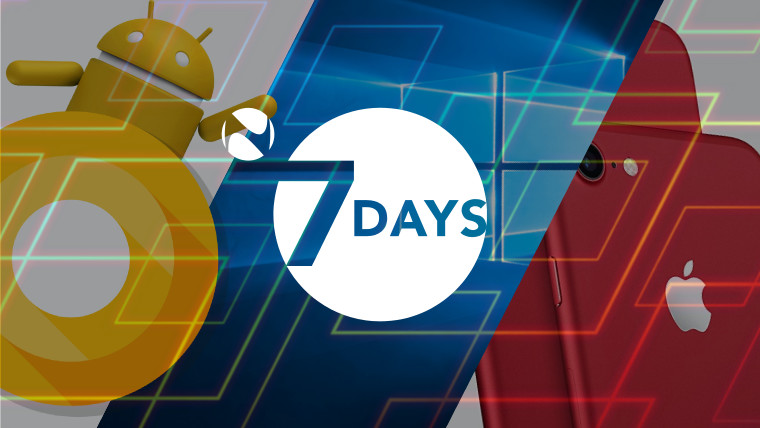
It’s been an action-packed week across the tech world, filled with exciting news, spicy rumors, and one or two surprises. But don’t worry if you’ve struggled to keep up with it all – 7 Days is here again to walk you through what’s been happening, and bring you up to speed.

Our global tech odyssey begins this week with WikiLeaks, which contacted major tech companies including Apple, Microsoft and Google, offering to work with them in patching exploits used by the CIA, revealed in its recent 'Vault7' leaks. However, WikiLeaks attached certain conditions to its offer of cooperation - and since then, those companies have not responded favorably to the organization's requests.

In an unsettling move, the US Senate voted to allow internet service providers to share and sell users' browsing histories without their explicit permission.
Meanwhile, in Minnesota, a judge granted a warrant to a local police department requiring that Google provide the personal details of literally anyone, anywhere, who looked for a specific name using its search engine.

Google apologized earlier this week after YouTube's 'Restricted Mode' - which is intended to filter out inappropriate content for certain users - began indiscriminately blocking videos from the LGBTQ+ community, without explanation. The company apologized, and later said that the feature "isn't working the way it should", promising to fix it.

Over on the Google Play Store, a mystery has been brewing. WhatsApp recently received a flood of thousands of five-star reviews on the store - but they refer to the app as a "game", and describe how the reviewers "enjoyed the gameplay", which certainly raises some questions.

Speaking of five-star reviews, Netflix is dropping its star-based ratings system in favor of a simpler thumbs-up/thumbs-down method for rating its shows and movies.

Qualcomm announced its new 205 Processor Mobile Platform, a dual-core chipset that will bring 4G LTE to affordable feature phones.

British telecommunications giant Vodafone is joining forces with Idea, one of India's top mobile operators, to form the country's largest carrier, with almost 400 million customers, and around 40% of the nation's mobile revenue.

It also seems that Apple is preparing to start manufacturing iPhones in India.

However, over in New Zealand, Apple has come under fire for having sold $4.2 billion (NZD) worth of products in the country since 2007, but paying no taxes there at all.

Tuesday was a big day for Apple as it made a series of product announcements. It launched new (PRODUCT)RED special editions of its iPhone 7 and 7 Plus, contributing to the fight against the spread and the effects of HIV/AIDS. Aside from the rather striking new lick of paint, though, they're technically identical to the 'standard' iPhone 7 models that it launched last year.

It also doubled the storage of its iPhone SE range at no extra cost, finally eliminating the scourge of the 16GB iPhone from its line-up.

And it brought an end to its 9.7-inch iPad Air range, replacing it with a much cheaper 9.7-inch tablet, simply branded "iPad", and starting at $329. It also ditched the iPad mini 2, and doubled the mini 4's storage.
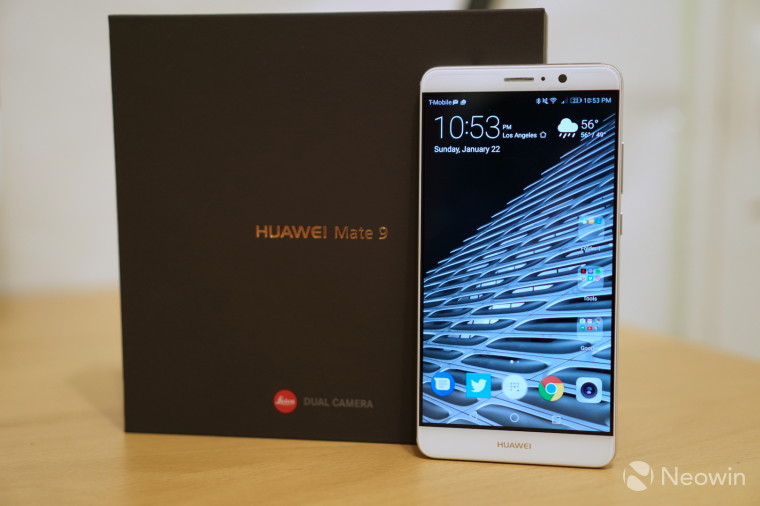
Huawei released an update for its Mate 9 handset to enable Amazon's digital voice assistant, Alexa, allowing users to control smart home devices and more.

Sony unexpectedly announced the Xperia L1, with a 5.5-inch display and Android 7.0 Nougat.

But even more expected was an announcement from VAIO, which of course used to be owned by Sony. A year after launching the Phone Biz with Windows 10 Mobile, VAIO announced the Phone A, with virtually identical (and now somewhat outdated) specs, and running Android 6.0.1 Marshmallow (!!), which was originally released in December 2015.

HMD Global said that its Nokia 3, 5 and 6 Android smartphones will be made available in the US, as part of plans for a simultaneous launch of its devices in 120 markets in Q2 2017, which it described as "ambitious".
That is something of an understatement.

Details of Samsung's new Galaxy S8 flagship continued to emerge in recent days:
- Performance benchmarks hint at fierce performance for Galaxy S8
- Samsung announces Bixby, its new digital assistant, launching on the Galaxy S8
- Screen resolution options
- Samsung's upcoming DeX desktop docking station for the S8 may include active cooling fans
- Samsung releases UNPACKED 2017 app ahead of launch event
- Galaxy S8 may be smaller than the Galaxy S7 edge

The Galaxy S7 and S7 edge on T-Mobile, and the LG V10 and G5 on AT&T, all received Google's latest security updates for Android this week.
Google published its Android Security report for 2016, acknowledging that "there's still a lot of room for improvement" in how devices are updated, but insists that it's made good progress, and will continue to do so.

Seven months after Android 7.0 was released, Nougat is now installed on just 2.8% of active Android devices. The Nougat update continues its long, slow rollout, making its way this week to:
- Samsung Galaxy S6 edge+
- Galaxy S7 and S7 edge on Rogers and Telus in Canada
- HTC One M9 on T-Mobile in the US
- Nextbit Robin
Google also released its second beta of Android 7.1.2 for supported devices.

But the biggest news of the week on the Google front came as the company revealed details of the next major version of its ubiquitous operating system. On Tuesday, it announced Android O, which will include a wide range of new features and improvements.
It also released its first Developer Preview for a handful of devices, and promised a wider beta program in May, ahead of Android O's general release in Q3. You can find out how to install the Developer Preview right now - but it's not recommended for inexperienced users.

Also on Tuesday, Microsoft released its latest Insider Preview for the Windows 10 Creators Update, build 15063, to PCs and phones in the Fast ring. A couple of days later, it released the same build to the Slow ring.
With the Creators Update due to be released next month, this week's leak of the SDK and Mobile Emulator for build 15063 appeared to confirm that it will be the final 'RTM' build for the new version of Windows 10.

Microsoft also released two cumulative updates for the Windows 10 Anniversary Update - the current version of the OS: build 14393.969 on Monday; and 14393.970 on Thursday.
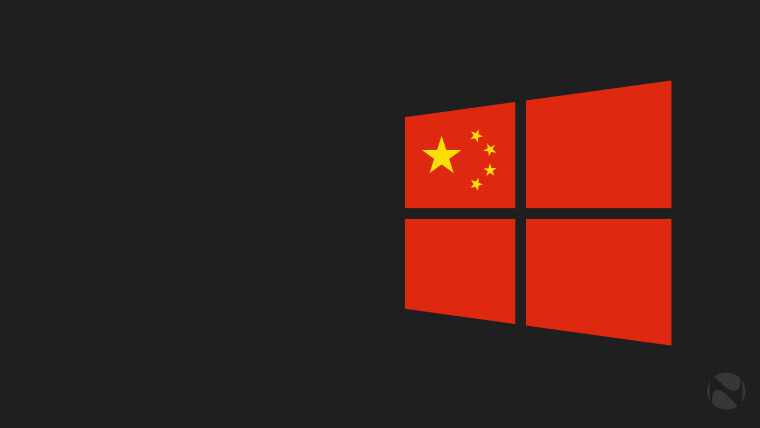
In China, Microsoft said that its specialized government-approved version of Windows 10 "is now in a good position" to serve the country's public sector.

But in India, there was bad news for Windows phone owners. With just one week's notice, Microsoft is ending its support for carrier billing there.

Over in the US, Cricket Wireless briefly offered pre-owned models of the Microsoft Lumia 650 for just $0.99 (yes, that's 99 cents - not a typo) - but it's since removed that listing.

Users with older versions of Windows and Windows Phone will no longer be able to access the Microsoft Translator app from next month. Some users will be able to download "new versions" of the app to continue using it - but these changes do not affect Windows 10 devices.

It's becoming increasingly difficult to keep track of Microsoft's near-endless stream of deals on its Surface devices. In the US, it cut $100 off the entry-level Surface Pro 4 without the Surface Pen; and then a few days later, it reduced the price of another model by $200.
Over in the UK, literally two minutes after ending one deal, it launched another one, offering up to 24% off select Surface Book and Pro 4 models. Earlier this week, there were five separate deals available on the Surface Pro 4 at the same time in the UK.

Nonetheless, the Surface Pro 4 appears to be selling well. According to the latest AdDuplex report, it's the most popular device in Microsoft's range - but HP is the world's biggest Windows 10 PC maker.
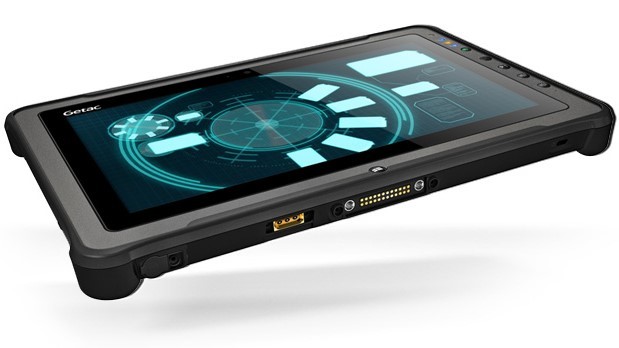
The US Army has ordered almost 10,000 rugged Windows 10 tablets, including Intel's latest Core processors, and a variety of security features.

A company founded by a former Microsoft employee has started a crowdfunding campaign, aiming to launch an 8-inch Windows 10 ultra-mobile PC with an ARM-based Snapdragon 835 processor, 4G LTE, and an integrated keyboard. Priced at up to $750, the company behind the device hopes to launch the Windows 10 model in January 2018, a few months behind the cheaper Android model.

Last year, Microsoft shipped the Windows 10 Anniversary Update with an incomplete Skype Preview app. Ahead of the Creators Update, and following months of additions and improvements to the app, the company dropped its 'Preview' tag in the latest version this week.

Microsoft Edge was declared the least secure web browser after being hacked more than any of its rivals at the Pwn2Own 2017 hacking event. Google's Chrome browser emerged unscathed. Microsoft said that "security is a process, not a destination", and outlined various improvements in its browser to enhance its security.
It also announced that it's bringing support for CSS Custom Properties to Edge in the Creators Update.

For the second time in recent weeks, many users found themselves unable to sign in to services using their Microsoft account credentials on Tuesday; the issue affected services such as OneDrive, Xbox Live, Outlook.com, and more.

Those login issues didn't exactly provide the ideal build-up to Microsoft's announcement that its Outlook.com Premium mail service is now available in six new markets.

LineageOS emerged from the ashes of Cyanogen, offering a new alternative Android-based operating system. The OS has now reached over a million installations, and its development team celebrated by revealing new improvements and adding support for more devices.

Cyanogen's Kirt McMaster revealed that Nintendo had approached the company to ask for its help in developing a custom version of Android for the console that it eventually released as the Switch this year. McMaster said he had "told them to stick it".
Charming.
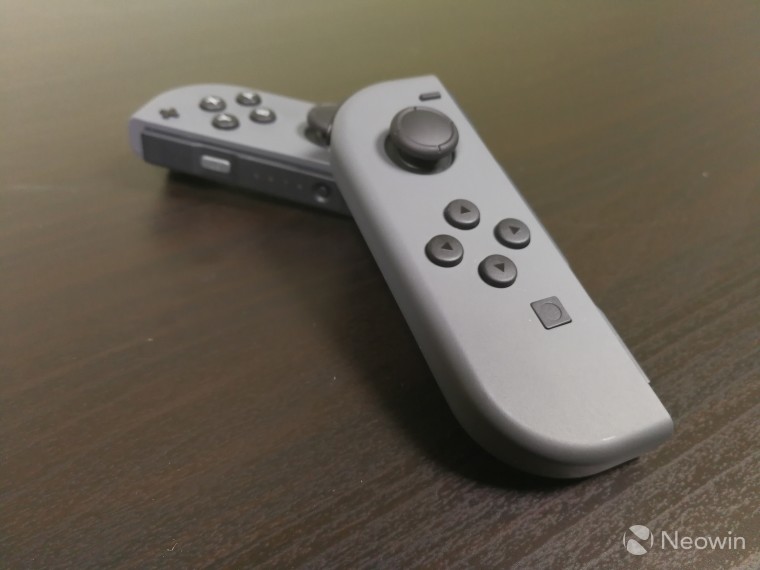
Nintendo finally acknowledged issues affecting the connectivity of the Joy-Con controllers on its Switch console, following weeks of complaints. It described the problem as a "manufacturing variation", and is offering free repairs for affected controllers.

By the way, if you're thinking of buying the Nintendo Switch Pro Controller, be sure to check out our unboxing video and gallery.

It's been quite a busy week for those on the Xbox Insider Program. On Tuesday, Microsoft released build 15063 - yep, the same number that's virtually certain to be the RTM build for the Creators Update - to the Alpha Ring, followed quickly by the Beta Ring, and Ring 3.
A couple of days later, it rolled out build 15063.1003 to the Alpha Ring, before rapidly rolling it out to the Beta Ring and Ring 3 too.
It's also released the first Alpha Ring Insider Preview of the Version 1704 update - which will come after the Creators Update. Many of the features in the new 1704 preview were outlined earlier in the week in an official announcement.
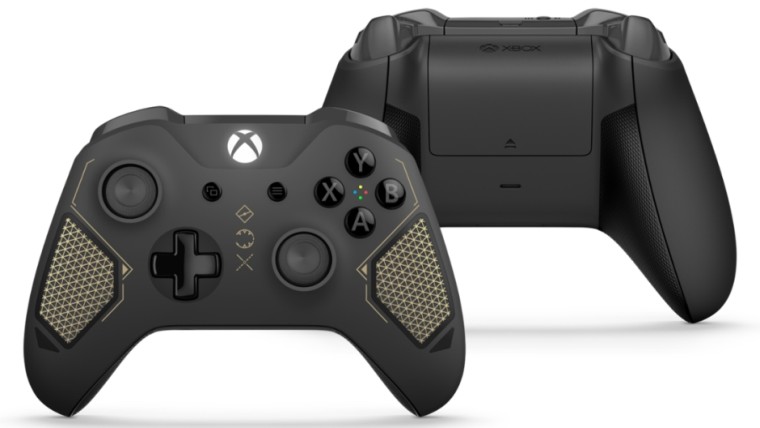
Microsoft also announced the Wireless Controller Recon Tech Special Edition for the Xbox One and One S. Priced at $69.99, the company said that it's "inspired by military technology", and it's the first in a new 'Tech Series' of Wireless Controllers launching this year.

The number of Xbox 360 games supported on the Xbox One through the Backward Compatibility feature rose to more than 350 when Microsoft added three more games on Tuesday, followed by a further three additions on Thursday, including Assassin's Creed Revelations.
It was also confirmed this week that an Assassin's Creed TV show is officially in development.

Photos purporting to show marketing material for Destiny 2 emerged this Thursday, apparently revealing the game's release date, and confirming an upcoming beta.

The long wait for Mass Effect: Andromeda finally came to an end this week, as the game launched on the Xbox One, PlayStation 4 and PC. Its release had been delayed by several months.

But our journey ends this week with the world's most popular plumber, who finally made his way to the world's largest mobile platform. Six months after it was originally announced, and three months after its launch on iOS, Super Mario Run is now available on Android.
Better late than never?
Bonus content
Before we wrap things up for another week, let me first highlight a few extra bits around the site that I hope you’ll enjoy reading.

First up, check out our overview of some of the new features and improvements coming in the Windows 10 Creators Update.

Shreyas Gandhe shared his review of the Oukitel U15S, an Android smartphone with 4GB RAM, and 32GB storage and a rather slim design. Impressed? Don't be - Shreyas described the device as "a combination of wrong choices".

Timi Cantisano had a Flashback to the Nokia N95, ten years after its release. Times have certainly changed in the tech world since then, but the N95 was quite a remarkable device when it launched a decade ago. If you're feeling in a nostalgic mood, be sure to read the article for a trip down Memory Lane.

And finally, after Google announced details of its next major update for Android, we asked our readers what they think the big 'O' in 'Android O' might stand for. Which sweet snack or delicious dessert will it be named after? Join in the discussion and have your say!
Stay tuned to Neowin in the days ahead for what’s sure to be another exciting week, filled with official news, lots of updates, and plenty of insights from around the world of technology.
For now, though, there’s lots more to read across the site – including all sorts of interesting discussions over on our forums.
From all of us
on the Neowin team,
have a great weekend!

















